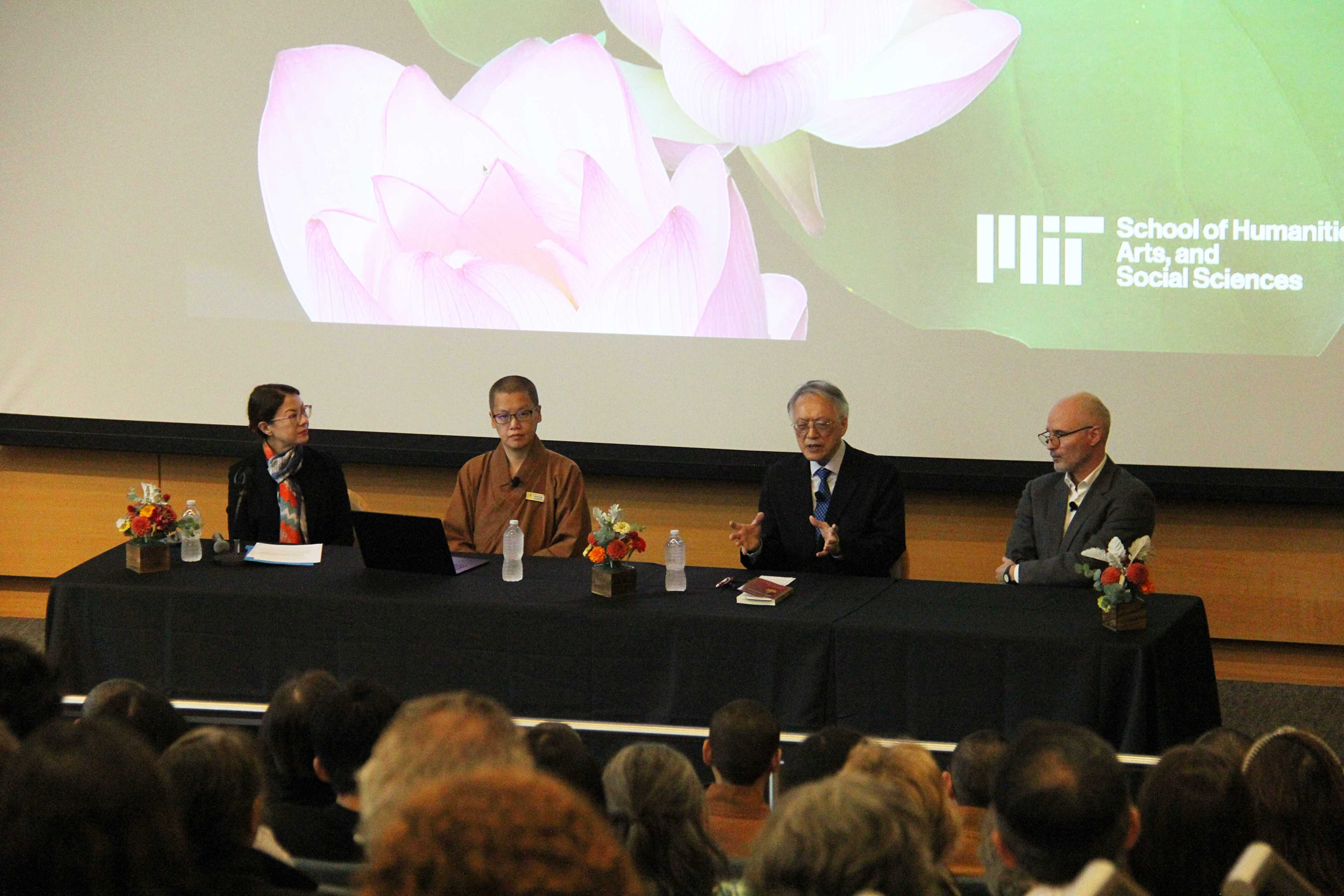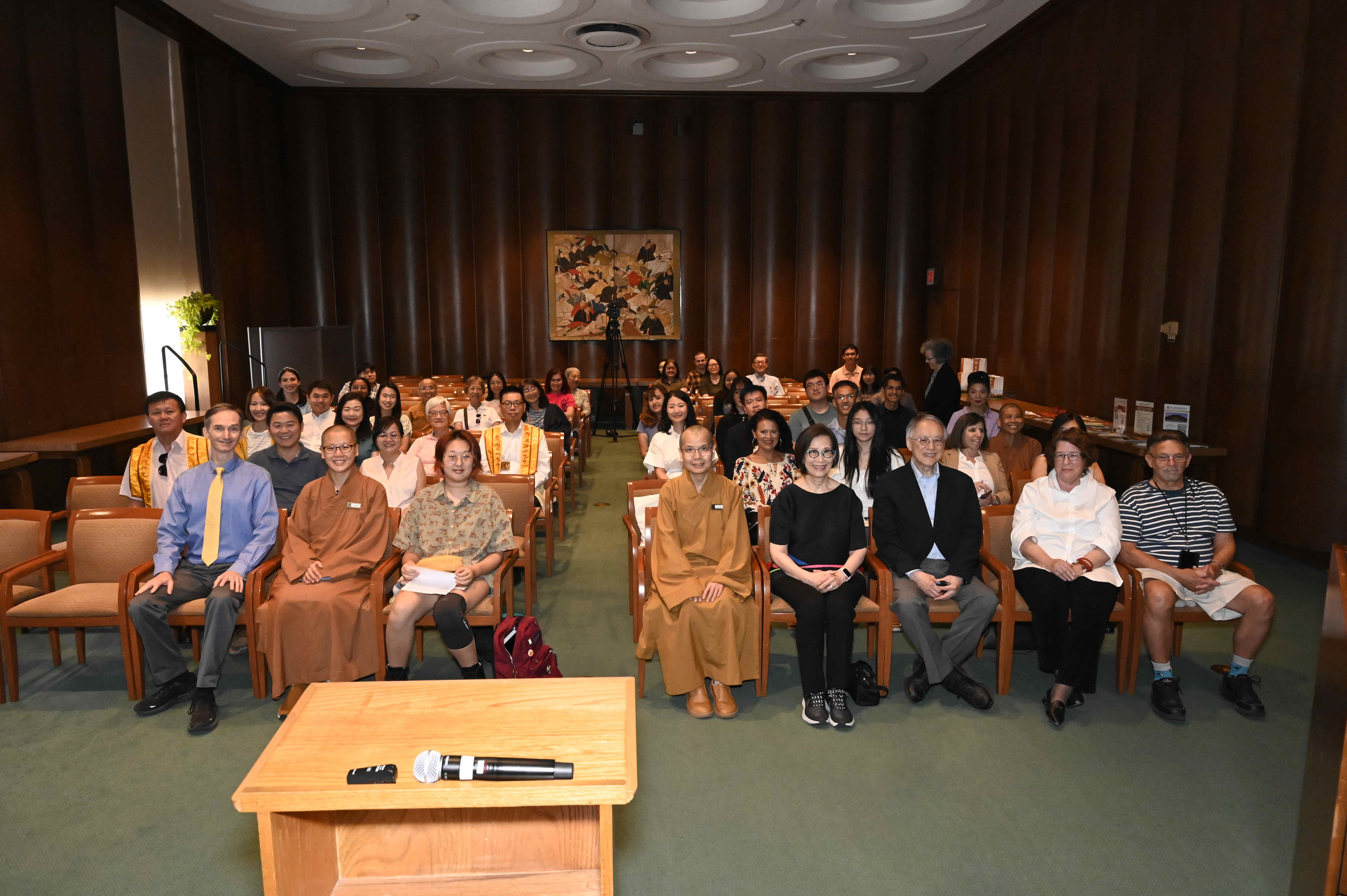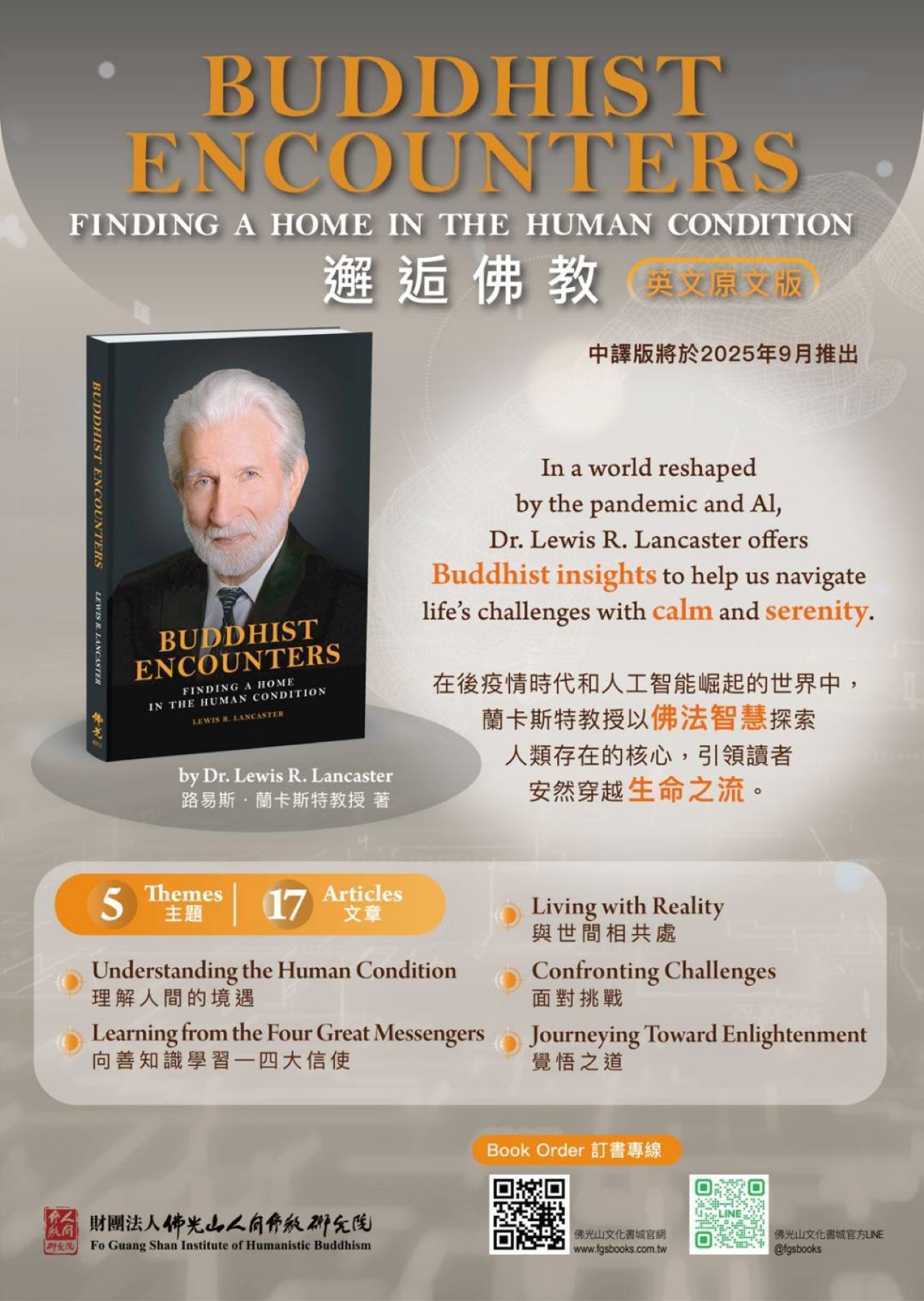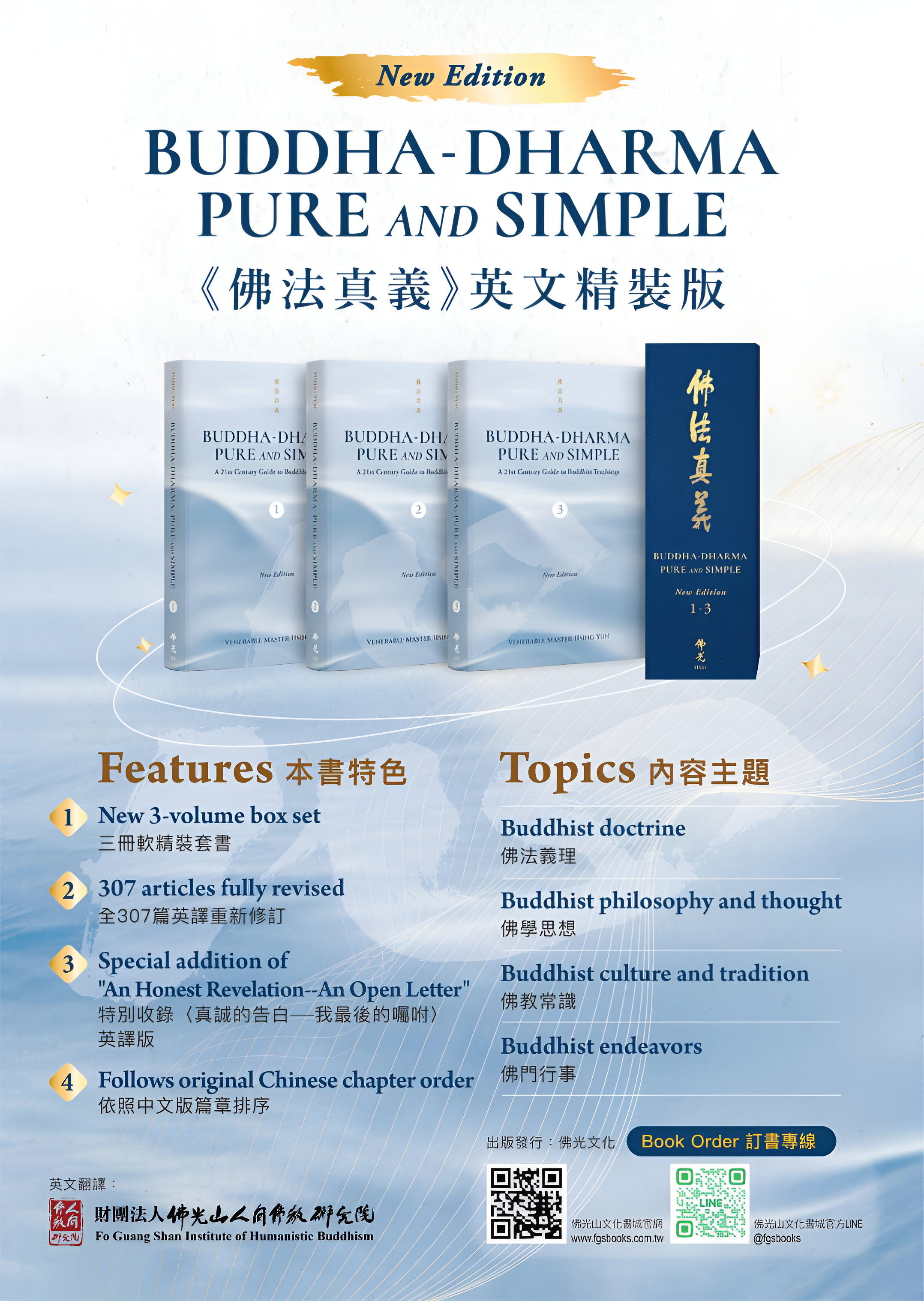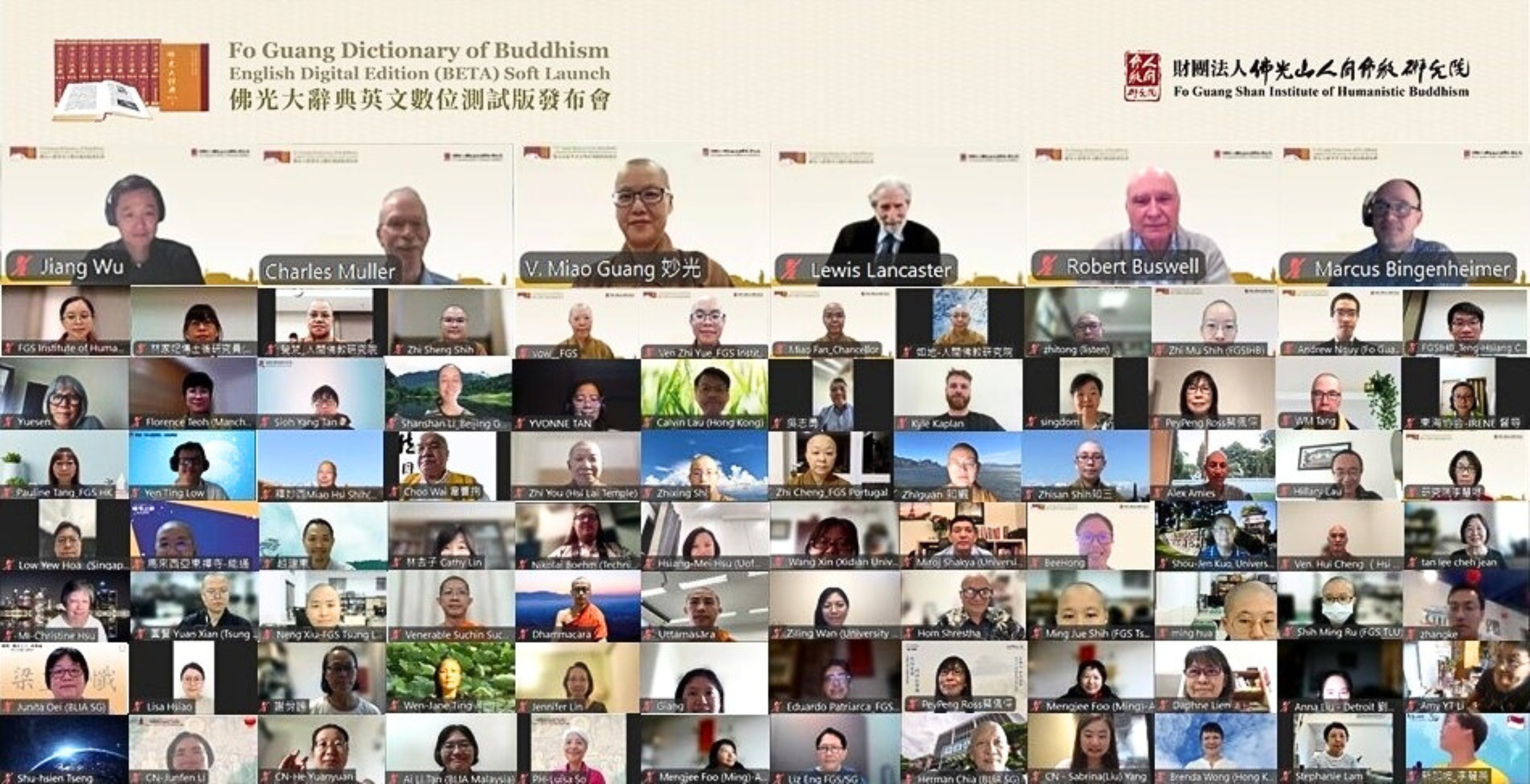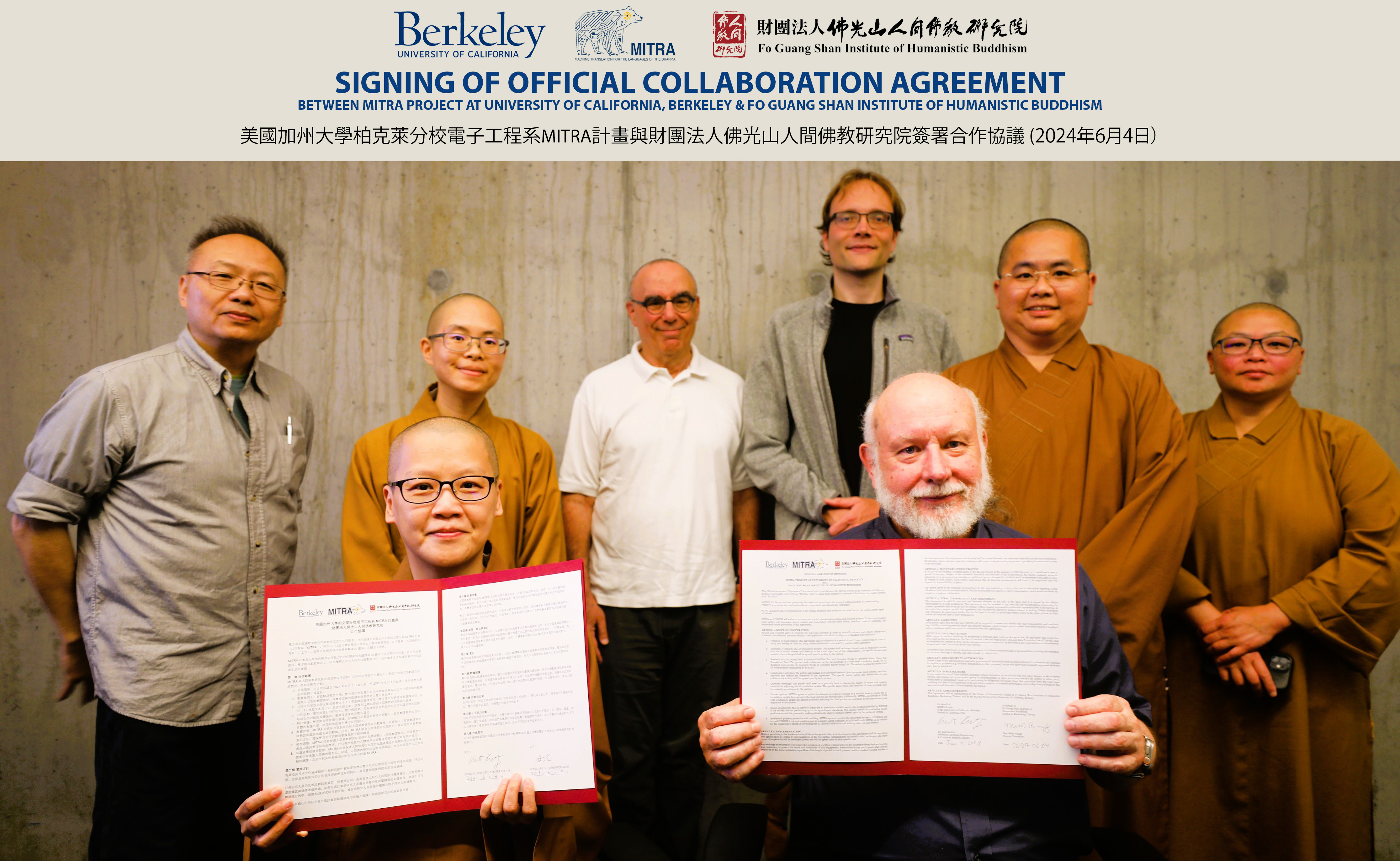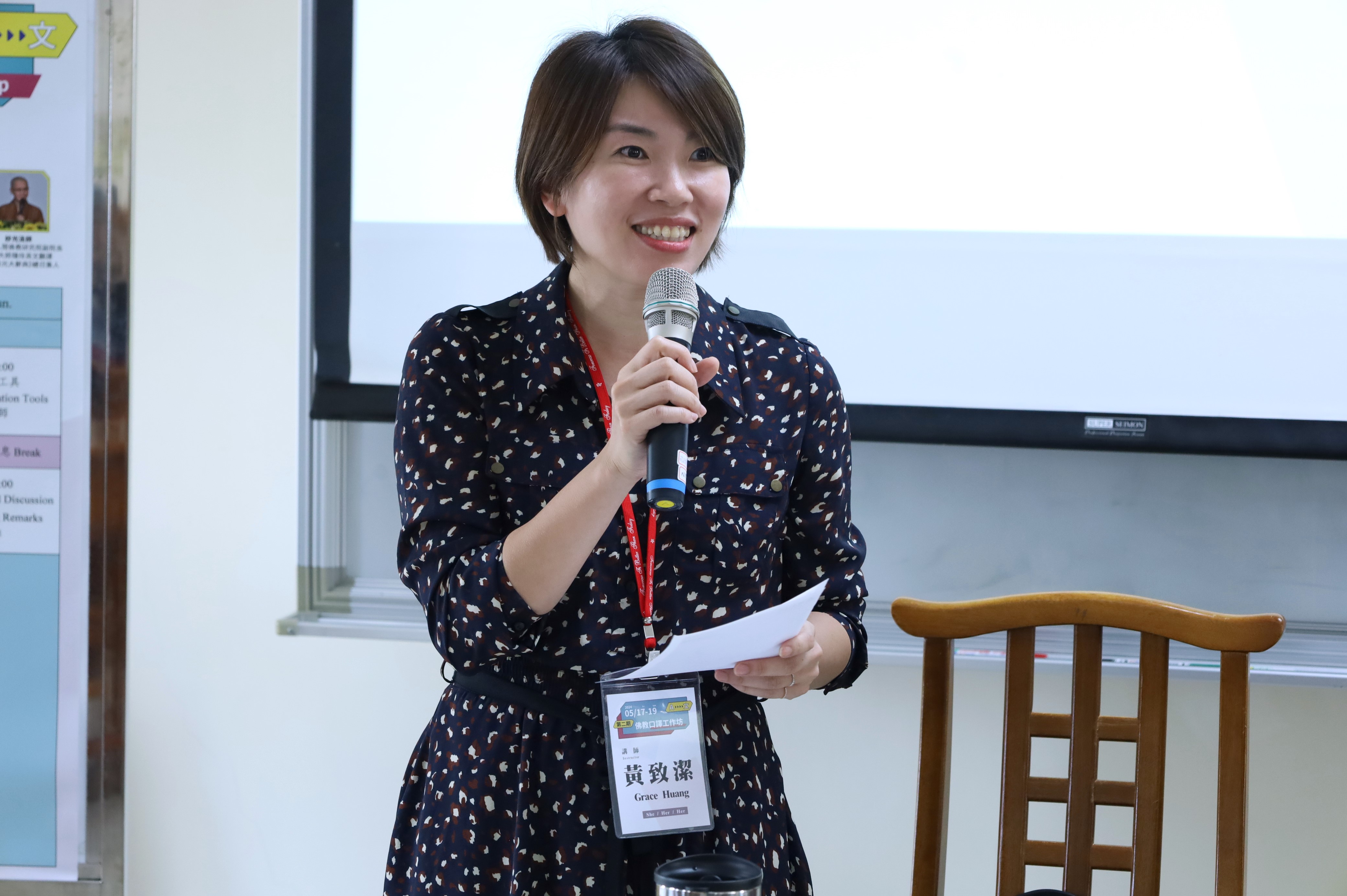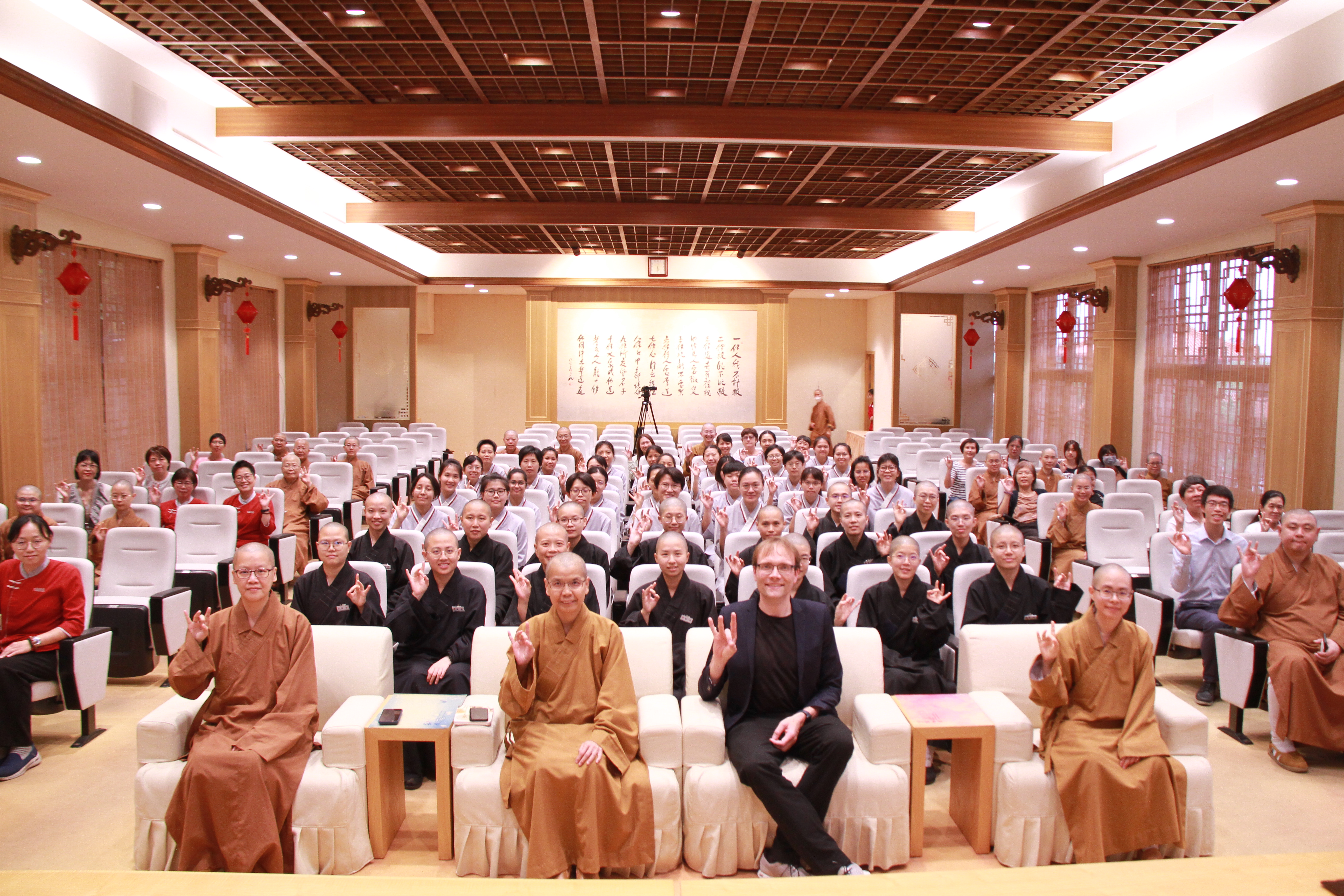2024/10/10Temple University College of Liberal Arts Hosts Talk on Compassion and Tolerance in Times of Social-Political Unrest
On October 7, 2024, Venerable Miao Guang, Deputy Chancellor of the Fo Guang Shan Institute of Humanistic Buddhism, delivered a talk at the College of Liberal Arts' Department of Religion, Temple University, at the invitation of Associate Professor Marcus Bingenheimer. The talk, titled “Compassion and Tolerance in Times of Social-Political Unrest,” explored how Buddhist values of compassion and inclusion can address modern societal challenges. The event attracted faculty and students from the Department of Religion, including Professors Marcus Bingenheimer and Douglas Duckworth, as well as students from China, Hong Kong, Sri Lanka, and other countries. Representatives from Fo Guang Shan, including Venerable Miao Fan, Chancellor of the Institute, also attended, with a total of 50 participants.











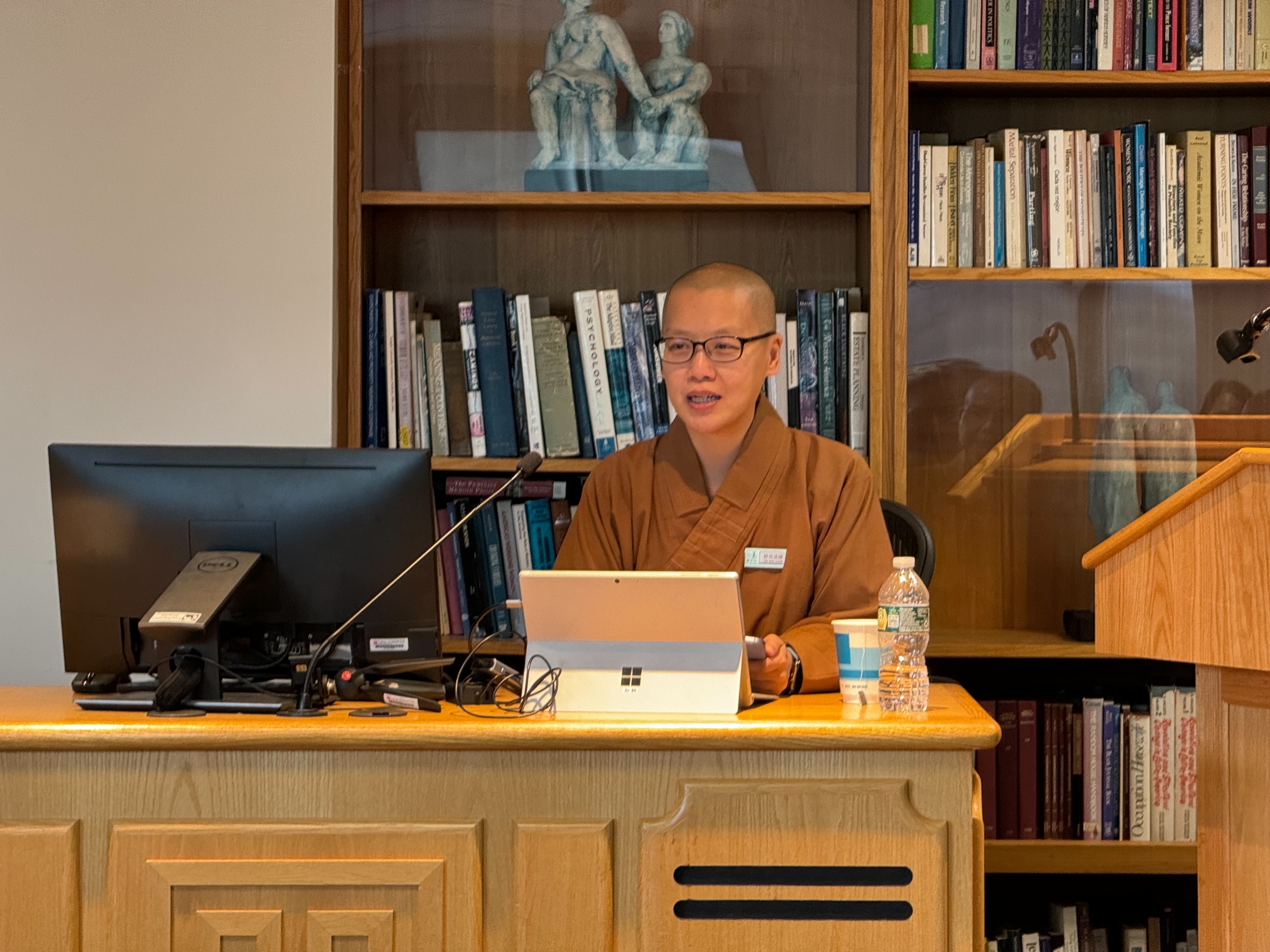

 News
News